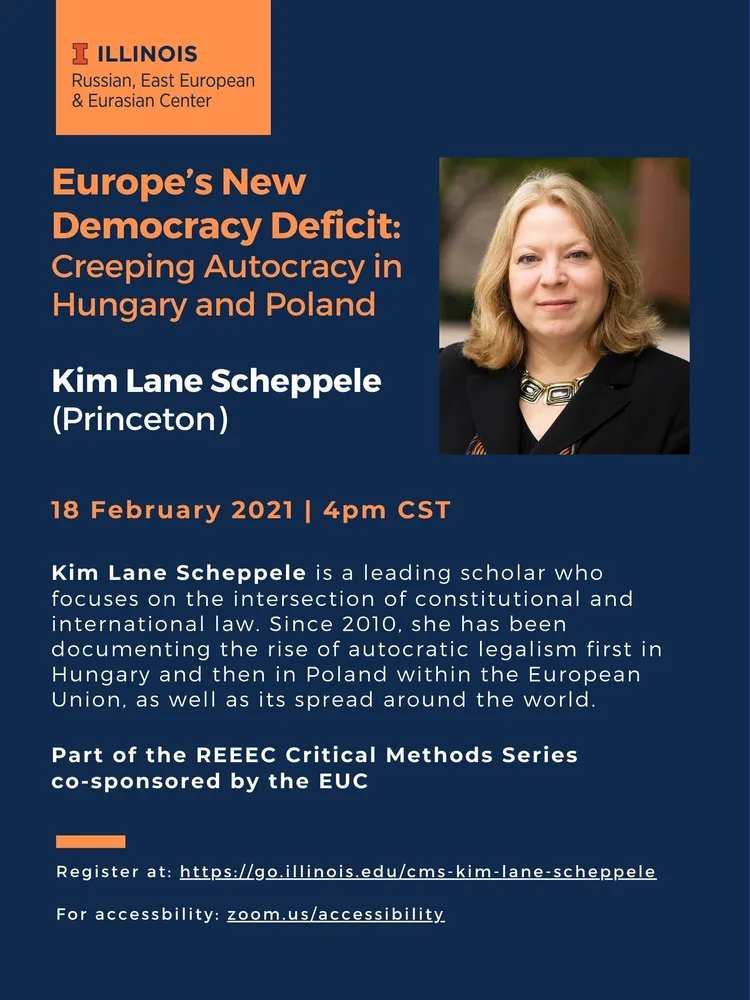
By Tabitha Cochran (MA Student, REEES and LIS)
On February 18th, 2021, REEEC and the EUC hosted Kim Lane Scheppele of Princeton University for a talk entitled “Europe’s New Democracy Deficit: Creeping Autocracy in Hungary and Poland.” This event was part of the REEEC Critical Methods Series (CMS) in Legal Studies and was attended by nearly 100 people from the University of Illinois community and beyond. Professor Scheppele is a leading scholar on the intersection between constitutional and international law and her recent work has traced the rise of autocratic legalism in Hungary, Poland, and across the EU and world.
In her talk, Scheppele argued that the EU presumes that its Member States are representative democracies and places more emphasis on rule of law than on democracy. The institution’s “old” democracy deficit is seen in the way that the most-democratically elected body, the European Parliament, has the least agenda-setting power; the European courts, European Commission, and the Council of Ministers are not directly responsible to an electorate. The “new” democracy deficit, which Scheppele used Hungary and Poland to highlight, comes into play when member states themselves are not democratic and threatens the EU’s indirect democracy. According to Scheppele, Hungary and Poland have become “rogue,” authoritarian states that hold the EU’s agenda hostage and make it impossible to enforce Article 7, which, when enacted, suspends certain rights from a member state after repeated breachings of the EU's values. They have maintained legitimacy by either rewriting their constitution and consequently acting lawfully (as with Hungary), or by exploiting the EU’s weaknesses in enforcing the law (as with Poland). Scheppele argued that Hungary and Poland have been left unpunished largely because of a lack of political will and because of the deep economic entanglement between Hungary, Poland, and Germany. The fact that individual Member States have taken it upon themselves to sanction Hungary and Poland’s behavior threatens a possible dissolution of the EU because the states are not acting as a unified body. Scheppele concluded the talk with an urgent call for the EU to recognize that it is “a community of fate and that it is everyone’s business what happens inside each Member State.”
This event was preceded by a discussion led by Professor Jessica Greenberg, the organizer of the REEEC CMS in Legal Studies initiative, on authoritarianism and rule of law in Europe. The next event in this initiative will be a workshop featuring Forensic Architecture and new methodologies in evidence and documenting human rights violations.
Tabitha Cochran is a Master’s student in REEES and Library and Information Sciences. Her research interests are focused on national identity in late imperial and early Soviet Ukraine.